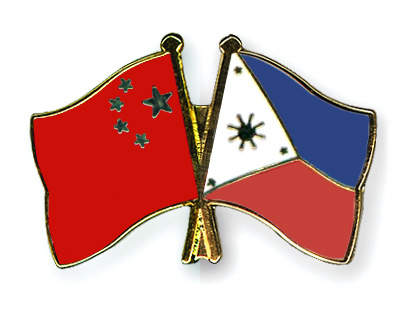
In the past weeks meetings between high level Philippine and Chinese military officials have resulted in the likely establishment of bilateral military logistics agreement. China is seeking to expand its military influence within the American sphere of influence within the Pacific. For the United States this military cooperation between China and its long-time ally the Philippines is both an embarrassing slap in the face as well as a defense setback in a security critical region of the world.
The budding military cooperation between China and the Philippines comes in the wake of what appeared to be a warming of relations between the United States and its former Commonwealth. In September, President Aquino returned from Washington DC with billions of dollars worth of US aid and the prospect for additional billions in American private investment. Away from economic realms, however, the relationship between the US and the Philippines militarily is much cooler, and it was this lack of cooperation from the viewpoint of the AFP (Armed Forces of the Philippines) that caused Manila to look towards Beijing for military aid.
The Visiting Forces Agreement (VFA), signed between the Philippines and the United States in 1999 stipulates that the United States will aid in the modernization of the Philippine Army. President Aquino, both formerly as a candidate and after his election has made modernization of the AFP a top priority, as AFP forces and their American allies continue to battle with Islamic militants in the southern islands. A recent Filipino review of the VFA, however, found that the US was not doing enough to assist in the modernization of Filipino armed forces. Matters were made worse soon after when the Obama Whit House released a travel adversary for American citizens heading towards Manila, which the latter saw as an overtly political response to its negative review of the VFA.
Whether a bumbling political miscue or an misguided intentional jab at a vital security partner, the American administration’s actions have driven the Philippines into to receptive arms of Beijing. To their credit, however, the Philippines needed little extra motivation to pursue opportunities to the east. As was discussed in a previous post by this author on National Security Policy, the Philippines is using its unique position of being of vital importance to both Washington and Beijing to extract aid and support of the regions greatest powers. Even though the current Chinese military aid is likely to take the form of only heavy construction equipment, and does little to help conduct the counter-insurgency operations which the US Army assists the AFP with, it does send a clear signal to the US that Manila is more than willing to take its support elsewhere.
Though the Philippines lack the power or the will to hold the US hostage in regards to military aid, their position is strong enough for them to make it abundantly clear to the US that military assistance to the islands is of high priority. Stretched thin in Afghanistan and facing a dire economic situation, the Obama administration has given little to no attention to the storm clouds gathering in the east, and has failed to recognize the vital strategic importance of the Philippines in regards to United States objectives in the region. President Aquino of the Philippines deserve credit for his navigation of the dangerous waters between the US and China. We should all expect this situation to remain fluid over the coming years, hopefully ending with a renewed emphasis of military cooperation between the United States and its former Commonwealth.
No comments:
Post a Comment